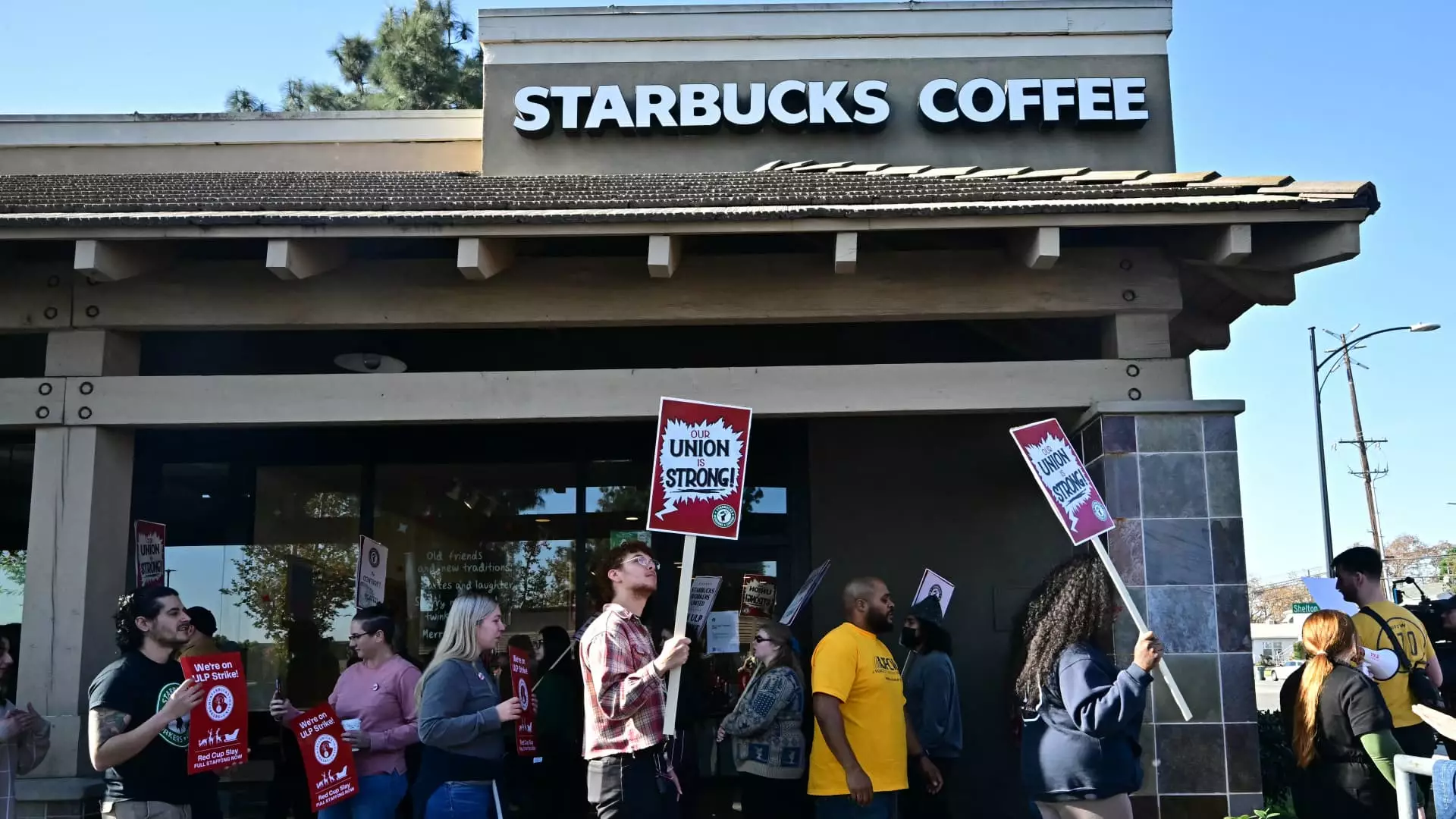The ongoing Starbucks barista strike represents a significant mobilization of labor in the coffee giant’s framework, spanning approximately 5,000 workers across over 300 locations in 45 states. This action is set against the backdrop of the busy holiday season, a critical period for Starbucks, traditionally marked by increased customer traffic and sales. Although this strike only affects about 3% of all U.S. Starbucks stores, its implications reverberate throughout the entire organization, raising essential questions about labor rights within a sector often dominated by corporate interests.
Union Demands and Company Response
At the heart of the strike, organized by the Service Employees International Union and Starbucks Workers United, are demands for substantial wage improvements—an immediate hourly wage increase by as much as 64%, and a total increase of 77% over a proposed three-year contract. This substantial raise is a reflection of the workers’ feelings of being undervalued amidst soaring inflation and rising living costs. Lynne Fox, president of the Workers Union, articulated the frustrations of the baristas, stressing their desire for recognition and fair compensation rather than empty platitudes about valuing employees.
In contrast, Starbucks’ management, represented by executive vice president Sara Kelly, dismissed these demands as unsustainable. Kelly highlighted the benefits package available to employees—stressing an average of $30 an hour when factoring in benefits for those working at least 20 hours per week—presenting a more complex narrative of employee remuneration. This discord illustrates a significant rift between management’s assessment of fair compensation and the workers’ perspective on their financial reality and treatment within the corporate system.
The Broader Context of Labor Relations
This current strike occurs in a wider national context where workers across various industries increasingly demand better working conditions, more favorable wages, and the right to organize. Starbucks, having been a focal point of unionization efforts, is emblematic of the challenges facing many workers. The company’s actions and responses throughout this process could either set a precedent for labor relations or herald a more contentious climate in which worker rights are continually challenged.
Interestingly, the scrutiny of management extends to Brian Niccol, the newly appointed CEO from Chipotle. Although he has indicated a willingness to engage in good-faith negotiations, his history reveals a complex relationship with labor demands. The previous settlements during his tenure at Chipotle suggest that while corporate leaders may espouse a commitment to dialogue, substantial changes often require robust action from workers.
As the Starbucks barista strike continues to unfold, it presents a critical moment for reflection in the business community regarding labor practices and corporate responsibility. While the company contemplates its financial strategies during a peak season, baristas are asserting their rights and demanding a seat at the table—a fundamental pillar of any successful business model. The outcome of this strike may not only affect Starbucks’ operational landscape but could also contribute to a larger narrative about labor rights in the modern economy, where equity and respect in the workplace are paramount.


Leave a Reply